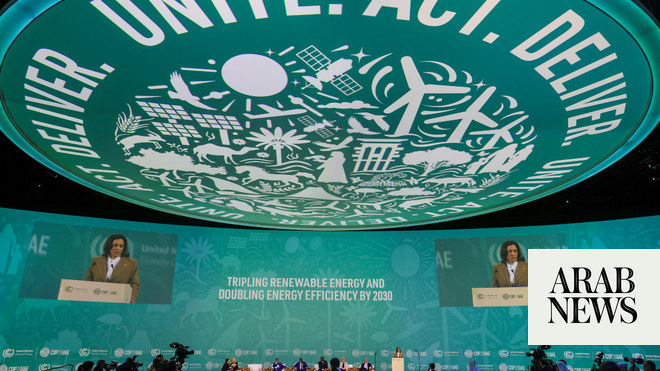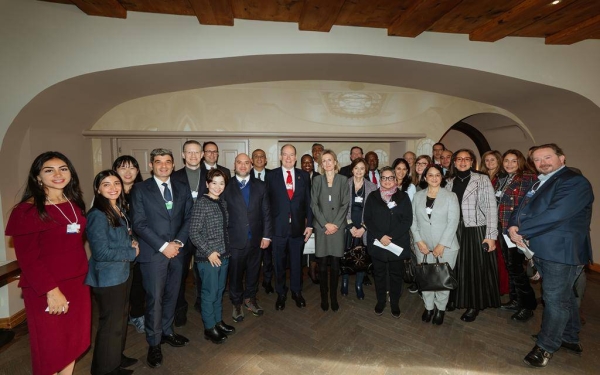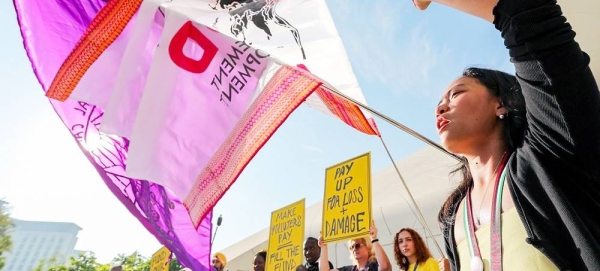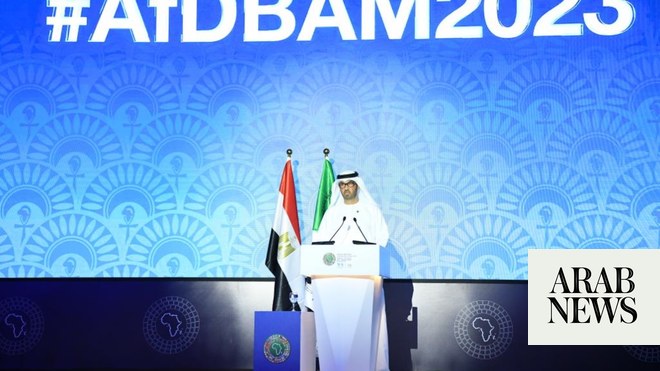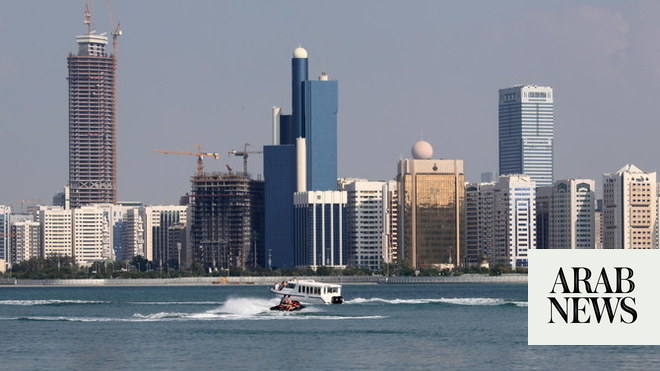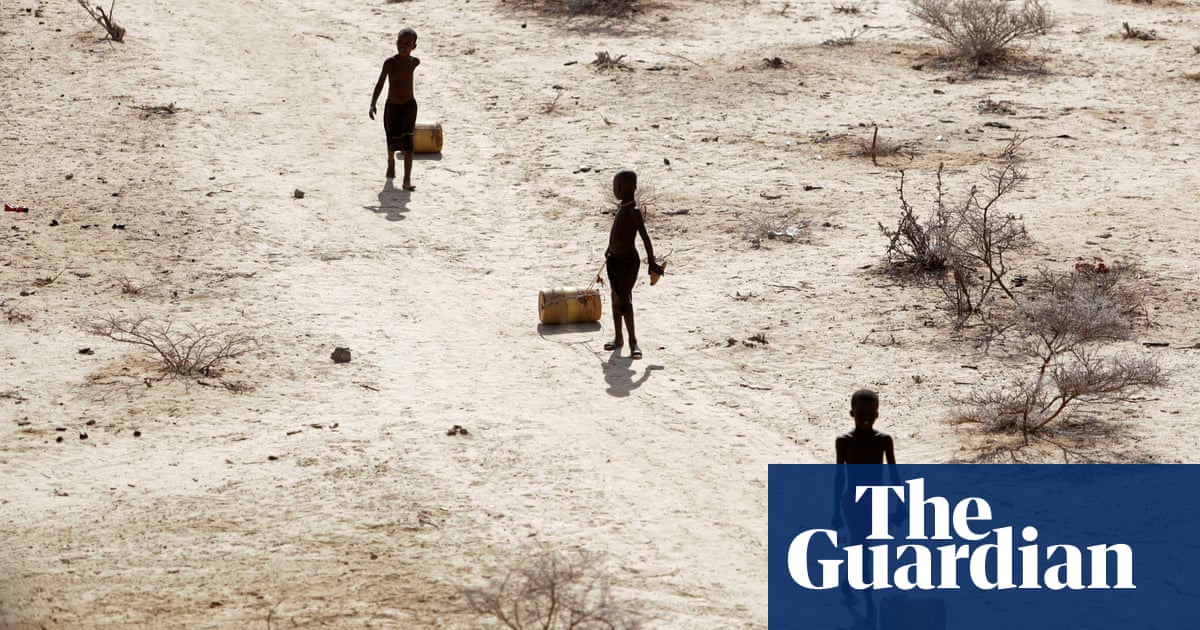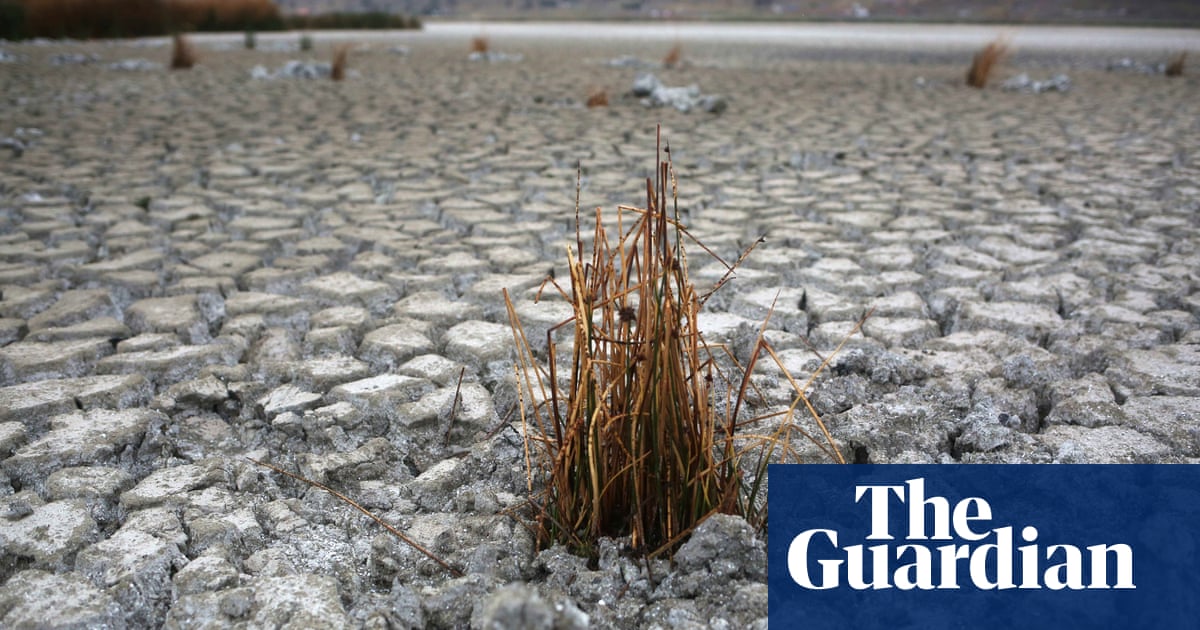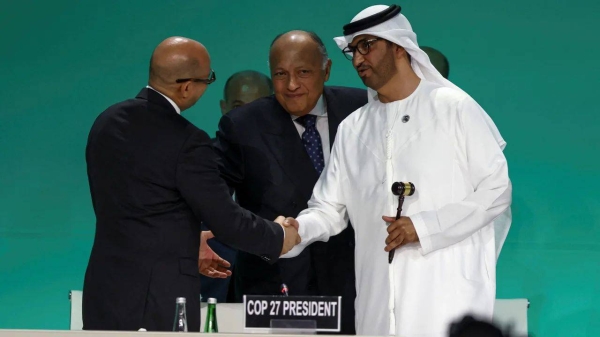
Global delegates at the COP28 climate summit in Dubai formally adopted a damage fund that was decades in the making, and several countries pledged millions of dollars to it to help nations hit hardest by the climate crisis – an early success on the first day of talks that allows more time to discuss the thorny issues around slashing fossil fuels.
But the United States is receiving criticism for contributing an “embarrassing” amount of money to the fund, less than a fifth of the United Arab Emirates’ contribution and 14 times less than the European Union’s.
Demand for a fund to channel money to developing countries to help them cope with the impacts of climate change has for years stymied progress at the annual negotiations. The details of the fund were agreed to earlier this month at a pre-COP meeting and were formalized Thursday, in the hope it would allow for progress in other areas at the summit.
“We have delivered history today — the first time a decision has been adopted on day 1 of any COP,” COP28 President Sultan Al Jaber said. The motion passed without objection and was met with a standing ovation.
While all parties agreed to the fund, there was previously opposition to allowing the World Bank to host it. Several countries objected to the bank managing the money on the basis that it has strong US connections. All parties ultimately agreed on the condition that the World Bank’s oversight of the fund would be temporary.
Some countries pledged money to the fund right after it was agreed. The COP28 host country, the United Arab Emirates, pledged $100 million, as did Germany. The UK announced £60million, part of which will be used for “other arrangements,” according to the release, while the US committed $17.5 million to the fund and Japan contributed $10 million.
While climate experts and advocacy groups largely praised the establishment of the fund, they also say it was just a first step on a long road to ensuring the countries hit hardest by the climate crisis are fully supported.
Money from rich nations must now begin flowing into the fund, they said.
“The loss and damage fund will be a lifeline to people in their darkest hour, enabling families to rebuild their homes after disaster strikes, support farmers when their crops are wiped out and relocate those that become permanently displaced by rising seas,” said Ani Dasgupta, president & CEO of World Resources Institute. “This outcome was hard-fought but is a clear step forward.”
The US in particular was criticized for its $17.5-million contribution, which some experts and advocacy groups said was “embarrassing” and “striking” for how small it is compared to the pledges of other nations.
Dasgupta called the contribution from the US, and Japan’s of $10 million, “disappointing.”
“Given the size of their economies, there is simply no excuse for their contributions to be far eclipsed by others,” Dasgupta said.
Mohamed Adow, director of Power Shift Africa, panned the US contribution as far too small. “The initial funding pledges are clearly inadequate and will be a drop in the ocean compared to the scale of the need they are to address,” Adow said in a statement. “In particular, the amount announced by the US is embarrassing for President Biden and (US climate envoy) John Kerry. It just shows how this must be just the start.”
Tom Evans, a policy adviser at international climate think tank E3G, noted the US delegation to COP is under considerable political pressure from dynamics at home, with a Republican-controlled US House of Representatives.
Still, he said, the size of the US contribution was “striking” compared to the far larger amounts from the UAE and Germany.
US officials were clear they were donating to a “climate impacts fund,” Evans said, adding, “they’re seeking to avoid the funds being called loss and damage because of fears about how that would be received by Republicans in Congress.”
Evans noted the US contribution is subject to approval from Congress, adding “we have seen in the past how difficult that is for the United States.”
CNN has reached out to the US delegation at COP28 for a response.
The development comes after years of wrangling over who should pay for climate impacts. Developing countries and small island states have been pressing for these types of funds since the early 1990s.
Several wealthy nations, including the United States, have been reluctant to tie countries’ obligations to their historic emissions. It’s also been contentious because wealthy nations have expressed concern that paying for such a fund could be seen as admission of climate liability.
With the damage fund decision out of the way, focus will now be on the Global Stocktake, where countries will need to agree on language to formally note what the world has achieved so far in responding to the climate crisis.
But the most controversial issue is the language that will define the future of fossil fuel use.
Since last year’s summit in Egypt, more than 80 countries have voiced support for language around phasing out fossil fuels, though many wish to continue using them as long as the climate pollution is captured before it enters the atmosphere. Several analysts have told CNN the UAE is pushing for allowances on carbon capture in the final text.
The UAE has been fiercely criticized for appointing Al Jaber — who also runs the nation’s mammoth oil and gas company, ADNOC — to preside over the meetings. More than 100 members of US Congress and the European Parliament voiced opposition to his appointment in May, while many NGOs have questioned whether he, and the UAE more broadly, can run a transparent conference free from its own energy interests.
Al Jaber pledged in his opening remarks that he would ensure full transparency in the process. — CNN




